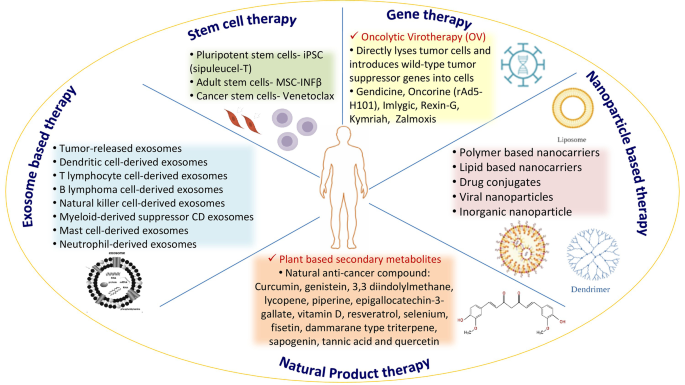The Only Guide for Arogyajivan Medical Tourism For Oncology
The Only Guide for Arogyajivan Medical Tourism For Oncology
Blog Article
Indicators on Arogyajivan Medical Tourism For Oncology You Need To Know
Table of ContentsNot known Factual Statements About Arogyajivan Medical Tourism For Oncology Unknown Facts About Arogyajivan Medical Tourism For OncologyThe 5-Minute Rule for Arogyajivan Medical Tourism For OncologyNot known Facts About Arogyajivan Medical Tourism For OncologyWhat Does Arogyajivan Medical Tourism For Oncology Mean?Fascination About Arogyajivan Medical Tourism For OncologySome Known Details About Arogyajivan Medical Tourism For Oncology
If you have cancer cells, your healthcare company will certainly suggest one or more ways to treat the condition. The most typical therapies are surgical treatment, chemotherapy, and radiation. Various other choices consist of targeted therapy, immunotherapy, laser, hormone therapy, and others. Right here is a review of the various therapies for cancer and how they work.Cancer cells grow and split faster than normal cells in the body. Since radiation is most damaging to rapidly growing cells, radiation therapy problems cancer cells much more than regular cells. It makes use of materials made by the body or in a laboratory to assist the immune system job harder or in a more targeted method to battle cancer.
Some have toxins or radioactive substances connected to them. Immunotherapy is provided by IV. Hormonal agent treatment is made use of to deal with cancers that are fueled by hormonal agents, such as breast, prostate, and ovarian cancers. It utilizes surgery, or medicines to quit or block the body's natural hormonal agents. This helps slow down the growth of cancer cells.
The medications are offered by shot or as tablets. Hyperthermia uses warmth to damages and kill cancer cells without damaging typical cells. It may be used for: A tiny area of cells, such as a tumorParts of the body, such as a body organ or limbThe entire body The warm is provided from a device outside the body or via a needle or probe positioned in the tumor.Laser therapy makes use of an extremely narrow, focused beam to ruin cancer cells. Thin fibers at the end of television route the light at the cancer cells. Lasers are also utilized on the skin. Lasers are most usually utilized with other kinds of cancer treatment such as radiation and chemotherapy. In photodynamic treatment, an individual obtains a shot of a medicine that is sensitive to an unique sort of light.
What Does Arogyajivan Medical Tourism For Oncology Mean?

An oncologist is a cancer cells physician. These healthcare companies concentrate on oncology the branch of medication that concentrates on diagnosing, hosting and dealing with cancer cells. AdvertisementCleveland Center is a charitable scholastic medical. Advertising and marketing on our site assists support our goal. We do not endorse non-Cleveland Center product and services. A visit to an oncologist offers you a chance to chat with a professional who recognizes what you're experiencing.
They're all set to help, and they'll walk with you every action of the way. An oncologist gets involved if you have signs and symptoms that might be cancer.
Arogyajivan Medical Tourism For Oncology Can Be Fun For Everyone
The earlier you obtain a medical diagnosis, the better. Lots of cancers are a lot more treatable in the beginning. Cancer is a complex illness. Individuals with cancer cells commonly require multiple oncologists on their healthcare team. This multidisciplinary method allows each expert to focus on a different location find more of your treatment with a typical objective of collaborative, caring treatment - ArogyaJivan more Medical Tourism for Oncology.
Radiation can diminish growths prior to surgical treatment or kill remaining cancer cells after surgical procedure. You might have radiation as a stand-alone therapy or in combination with various other therapies.
5 Simple Techniques For Arogyajivan Medical Tourism For Oncology
Do I have cancer cells? Your oncologist is right here to assist you browse these emotions. When your oncologist gathers the information they require, they'll: Review the results of your testsSend their findings to the medical care provider that referred youTell you whether you have cancer cells and if so, what kindTalk to you regarding various treatment optionsListen to your problems and anxietiesGive you resources that can provide support and additional informationYour first oncology see might take up to three hours.
Oncology is the research of cancer cells. The word originates from the Greek word for lump or mass. The medical area of oncology covers cancer research, threat and avoidance, diagnosis, therapy, and survivorship. Experts learnt oncology supply care for individuals that are at risk for cancer, being treated for cancer, and coping with cancer cells after treatment.

Unknown Facts About Arogyajivan Medical Tourism For Oncology
Some kinds of cancer cells happen most often in these more youthful age groups. When these types of cancer cells occasionally happen in adults, those adult people may choose to work with a pediatric oncologist.

In some cases, a medical oncologist could be the initial specialist a person sees. Often when cancer is believed but not identified, an oncologist could also be involved. Some individuals with blood conditions that might or might not be malignant may be described a hematologist oncologist. Many individuals will certainly proceed seeing their oncologist for follow-up consultations to examine for indicators of cancer coming back and to take care of any type of adverse effects from treatment.
Some Known Questions About Arogyajivan Medical Tourism For Oncology.
If you have a cancer cells diagnosis and are weighing your therapy choices, take into consideration getting involved in a scientific test. They might appear daunting at initially, clinical trials can be very advantageous no issue what type or phase of cancer you have. Benjamin Levy, M.D., medical director of the Johns Hopkins Kimmel Cancer Center at Sibley Memorial Medical facility and a lung cancer scientist, explains some of the reasons to join a clinical test.
Report this page